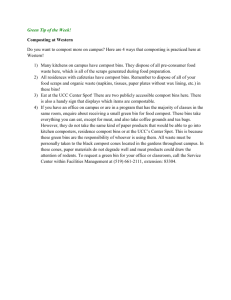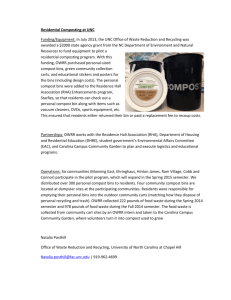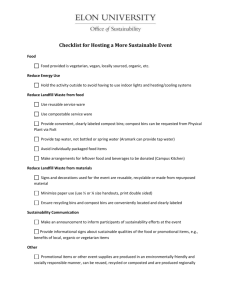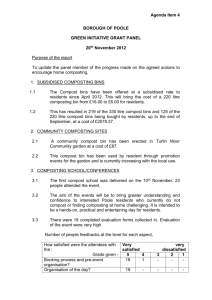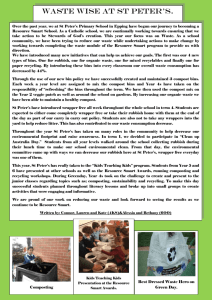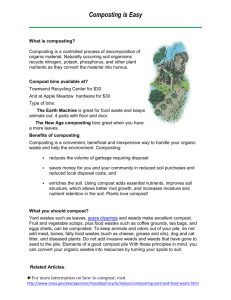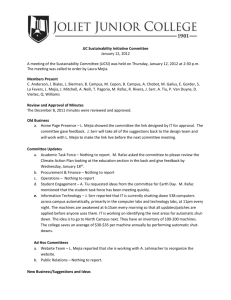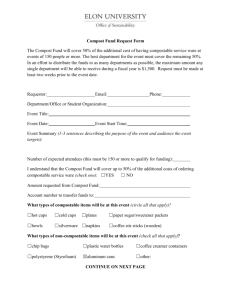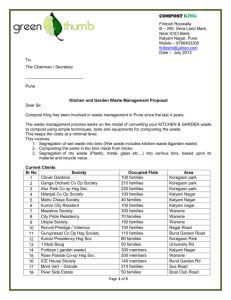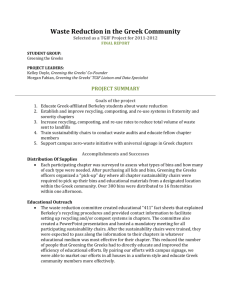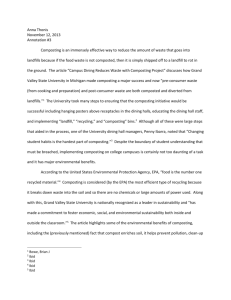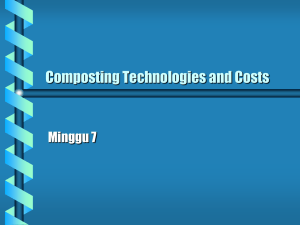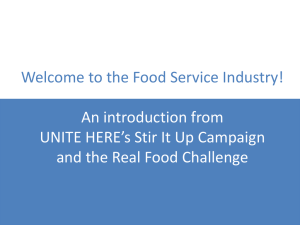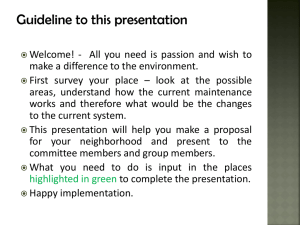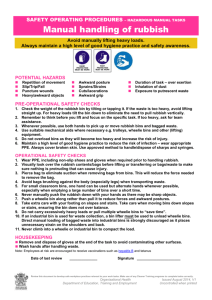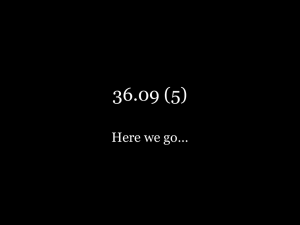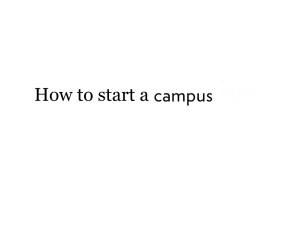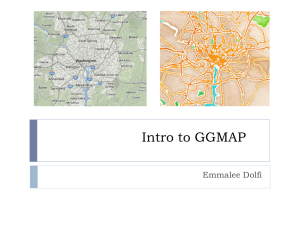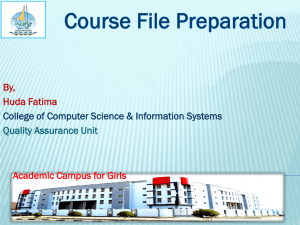Template for poster presentations
advertisement
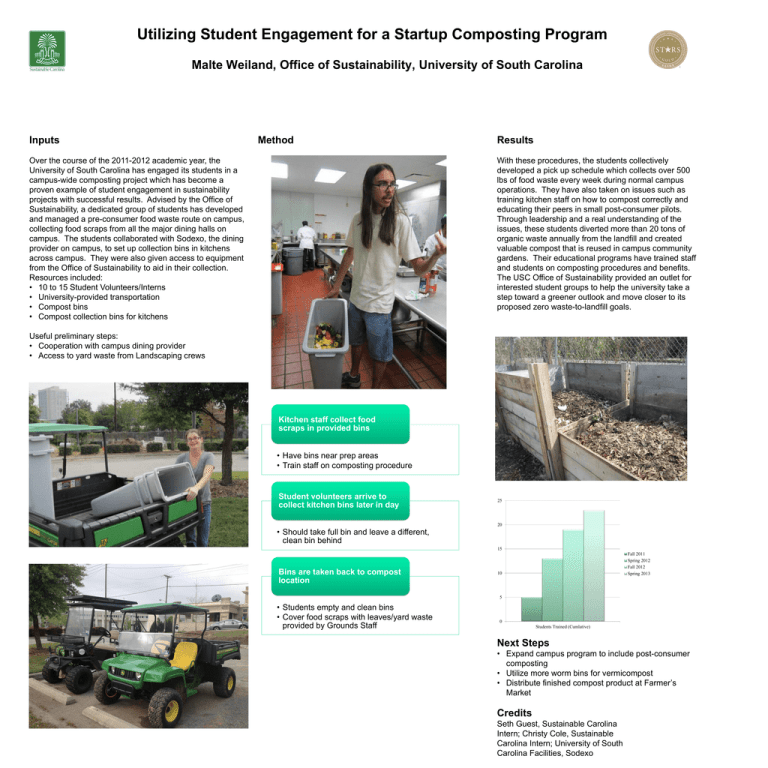
Utilizing Student Engagement for a Startup Composting Program Malte Weiland, Office of Sustainability, University of South Carolina Inputs Method Over the course of the 2011-2012 academic year, the University of South Carolina has engaged its students in a campus-wide composting project which has become a proven example of student engagement in sustainability projects with successful results. Advised by the Office of Sustainability, a dedicated group of students has developed and managed a pre-consumer food waste route on campus, collecting food scraps from all the major dining halls on campus. The students collaborated with Sodexo, the dining provider on campus, to set up collection bins in kitchens across campus. They were also given access to equipment from the Office of Sustainability to aid in their collection. Resources included: • 10 to 15 Student Volunteers/Interns • University-provided transportation • Compost bins • Compost collection bins for kitchens Results With these procedures, the students collectively developed a pick up schedule which collects over 500 lbs of food waste every week during normal campus operations. They have also taken on issues such as training kitchen staff on how to compost correctly and educating their peers in small post-consumer pilots. Through leadership and a real understanding of the issues, these students diverted more than 20 tons of organic waste annually from the landfill and created valuable compost that is reused in campus community gardens. Their educational programs have trained staff and students on composting procedures and benefits. The USC Office of Sustainability provided an outlet for interested student groups to help the university take a step toward a greener outlook and move closer to its proposed zero waste-to-landfill goals. Useful preliminary steps: • Cooperation with campus dining provider • Access to yard waste from Landscaping crews Kitchen staff collect food scraps in provided bins • Have bins near prep areas • Train staff on composting procedure Student volunteers arrive to collect kitchen bins later in day 25 20 • Should take full bin and leave a different, clean bin behind 15 Bins are taken back to compost location Fall 2011 Spring 2012 Fall 2012 Spring 2013 10 5 • Students empty and clean bins • Cover food scraps with leaves/yard waste provided by Grounds Staff 0 Students Trained (Cumlative) Next Steps • Expand campus program to include post-consumer composting • Utilize more worm bins for vermicompost • Distribute finished compost product at Farmer’s Market Credits Seth Guest, Sustainable Carolina Intern; Christy Cole, Sustainable Carolina Intern; University of South Carolina Facilities, Sodexo
